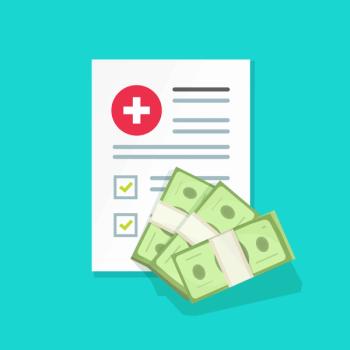
- MHE March 2023
- Volume 33
- Issue 03
Challengers of the Status Quo - Lower, Understandable Pricing In Generic Drugs
Take a look into this month's cover story series of the companies, trends and ideas that are shaking things up and reshaping the contour of how healthcare is paid for and delivered. Below spotlights Alexander Oshmyansky, M.D., Ph.D, and his company he founded, Cost Plus Drug, also known as Mark Cuban Cost Plus Drug Company.
Despite all the regulation, entrenched interests and bureaucratic entanglements, healthcare remains one of the more dynamic sectors of the American economy.
The activity spring partly from altruism: a desire to heal and help. There's also an abundance of resources — and not just a little profit seeking — in a sector that accounts for almost one-fifth of the U.S. economy.
Over the next few days, we are featuring some of the challengers to the status quo in U.S. healthcare: companies, people, trends and ideas that are shaking things up and reshaping the contour of how healthcare is paid for and delivered.
It's just a small sample - a tiny one - but these vignettes should provide insights into the road ahead in U.S. healthcare.
In January, the Mark Cuban Cost Plus Drug Company celebrated its one year in the generic drug business. Over those first 12 months, the company has signed up 1.8 million individual members seeking low-cost generic medications. “The number of new members has been going up at a pretty steady clip month over month,” says Alexander Oshmyansky, M.D., Ph.D, CEO and co-founder of Cost Plus Drug.
In addition to shaking up the consumer market for generics, Cost Plus Drug is making headway in signing up large customers, including a health insurer in Pennsylvania and a pharmacy benefit manager (PBM) in New York.
Generic drugs may not be the most glitzy business, but Oshmyansky does have a high-wattage celebrity co-founder in Mark Cuban, the owner of the NBA’s Dallas Mavericks, who became even more famous as a judge on the television series “Shark Tank.”
Cost Plus Drug pitches itself as a source of inexpensive generic drugs that are priced in a way that is understandable. The company says its prices are based on the cost to make the drug, a 15% markup, a $3 dispensing fee and the cost of shipping. It doesn’t accept payment from insurers, so although the pricing may be low and transparent, the cost to the individual consumer is all out of pocket.
However, Cost Plus Drug has started to work with PBMs and health insurers. In September 2022, the company announced a partnership with Rightway, one of several small upstart PBMs that are challenging the status quo. Cost Plus Drug has also signed deals with Capital Blue Cross, a health insurer in Harrisburg, Pennsylvania, and EmsanaRx, another one of the upstart PBMs (see page 18).
“In general, we can save employers somewhere between 50% and 60% off what they would pay for generic drugs,” says Oshmyansky, a radiologist who continues to practice. “We’re open to working with anyone who is open to work with us on our terms, which is transparent pricing.”
Successfully selling to consumers, employers, health plans and PBMs raises the question of what Cost Plus Drug could do for the federal Medicare program. In June, researchers from the Harvard T.H. Chan School of Public Health published an analysis in the Annals of Internal Medicine, in which researchers showed that if the Medicare program had purchased some of the generic drugs from Cost Plus Drug for Medicare members in 2020, the program could have saved as much as $3.6 billion, an amount equal to about 37% of what it paid that year for those medications.
Articles in this issue
almost 3 years ago
No Prescription Needed. But Will Insurers Cover OTC Hearing Aids?almost 3 years ago
Nontraditional Players Are Getting Into Healthcare Gamealmost 3 years ago
Digital Health Took Off. How To Keep it Flyingalmost 3 years ago
The List of PBM Formulary Exclusions Got Longer in 2023almost 3 years ago
RSV Vaccine Development Is On the Comeback TrailNewsletter
Get the latest industry news, event updates, and more from Managed healthcare Executive.

























